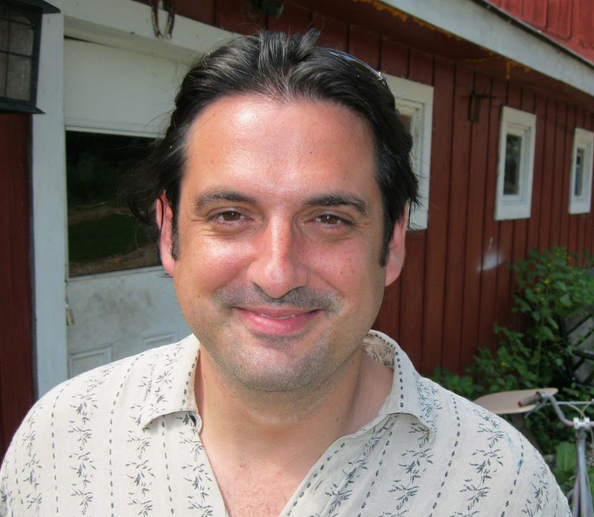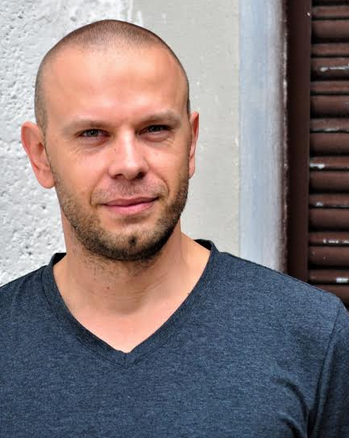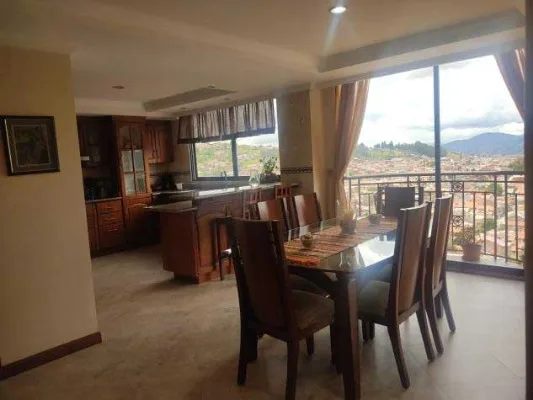Living on the lam in Cuenca, Facebook fugitive went by the name of ‘Si’ for ‘Silence’
By David Morrill
As an Ecuadorian court grapples with a U.S. extradition request for fugitive Paul Ceglia, a bizarre tale is emerging of the man prosecutors claim tried to defraud Mark Zuckerberg out of ownership of Facebook. A Russian expat couple tells how they worked with Ceglia on computer software and hardware projects until they became suspicious, discovered his true identity and turned him in.

Paul Ceglia at his Wellsville, New York home before his arrest.
On Monday, the National Court of Justice in Quito granted Ceglia 45 days to show why he should not be extradited. Judge Paulina Aguirre ruled that Ceglia remain in jail pending his attorney’s efforts to make his case.
Awaiting trial in New York in March 2015, Ceglia removed a court-ordered GPS ankle bracelet and disappeared. As it turned out, he has been living in Ecuador since then, mostly in Cuenca. He was arrested Thursday near Salinas. (For more on Ceglia’s arrest, click here.)
Expats Vadim and Eugenia Avdeev met Ceglia through mutual friends last year and Vadim, a cyber security and cryptography expert, began to work with Ceglia. “He was interested in protecting his identity and encrypting his communications,” Vadim says. “This is my specialty and I have worked with many individual and business clients on security issues.”
Eugenia, who assisted the projects as translator, admits she was never comfortable around Ceglia. “We never knew his real name,” she says. “He said to just call him ‘Silence,’ or ‘Si’ for short, although later he started using the name Silas Quinn.”
Eugenia said Ceglia was leery of having his picture taken and, when he bought a lot in the Cuenca suburb of Challuambamba, he chose one with a 360-degree view to keep a look-out for intruders. “He had a very big ego and was convinced people were out to kill him,” she says.

Cuenca expat and cyber security expert Vadim Avdeev
Like other expats who knew him, Eugenia considered Ceglia’s living arrangements strange. “He lived with his wife, two teenage children and a baby, and then there was his Italian girlfriend, Erika,” she says. “It wasn’t normal.”
Within weeks of beginning work for Ceglia, Vadim says the problems began. “He became very impatient with the progress even though I told him the work was complicated and would take time,” he says. One of the most complicated projects was a merger of internet and ham radio functions involving both hardware and software that Vadim had worked on for several years.
“He began to text rude, threatening messages and we became uncomfortable and began to wonder who this guy really was,” Eugenia says. She added that Ceglia once sent Erika, a masseuse at a Cuenca gym, to deliver a personal threat.
As the impatience and aggressiveness intensified, Vadim lifted one of Ceglia’s fingerprints from a water glass and checked it against a U.S. law enforcement database and discovered his real identity.
Checking computer hard drives that Ceglia had provided, Vadim discovered that Ceglia had installed wifi scanning devices in various parts of Cuenca to “harvest” personal, commercial and governmental data. “He was also buying data bases of hacked routers on the DarkNet, using it to hack routers that had not been hacked before,” Vadim says, adding that he found evidence that Ceglia was engaged in money-laundering activities and arms sales using Bitcoin markets.
Given Ceglia’s high profile, Eugenia figured she would have little trouble getting the attention of U.S. and Ecuadorian law enforcement officials. She was wrong. “I started making phone calls in April and it wasn’t until July that they got serious about him,” she says. In addition to the U.S. Marshals’ office, she contacted the FBI and CIA.
“In the movies about the FBI and CIA, things happen fast and I thought that’s how it would be in this case,” Eugenia says. “Instead, my calls were forwarded around and I had to repeat my name and tell my story again and again. One FBI agent thought Ecuador was part of Mexico. Another hung up on me because I wasn’t a U.S. citizen.” She concedes that the U.S. law enforcement system didn’t seem much more efficient than what she and Vadim have encountered with Ecuadorian bureaucracy.
Vadim and Eugenia have moved on to other projects, comfortable in their decision to alert law enforcement about Ceglia’s whereabouts. Vadim, who worked with Russian security agencies and the military before moving to Cuenca, has a contract with the city utility ETAPA to upgrade cyber security.
Eugenia is happy to be free of Ceglia’s threats. “I have no regrets. We did the right thing,” she says.


















